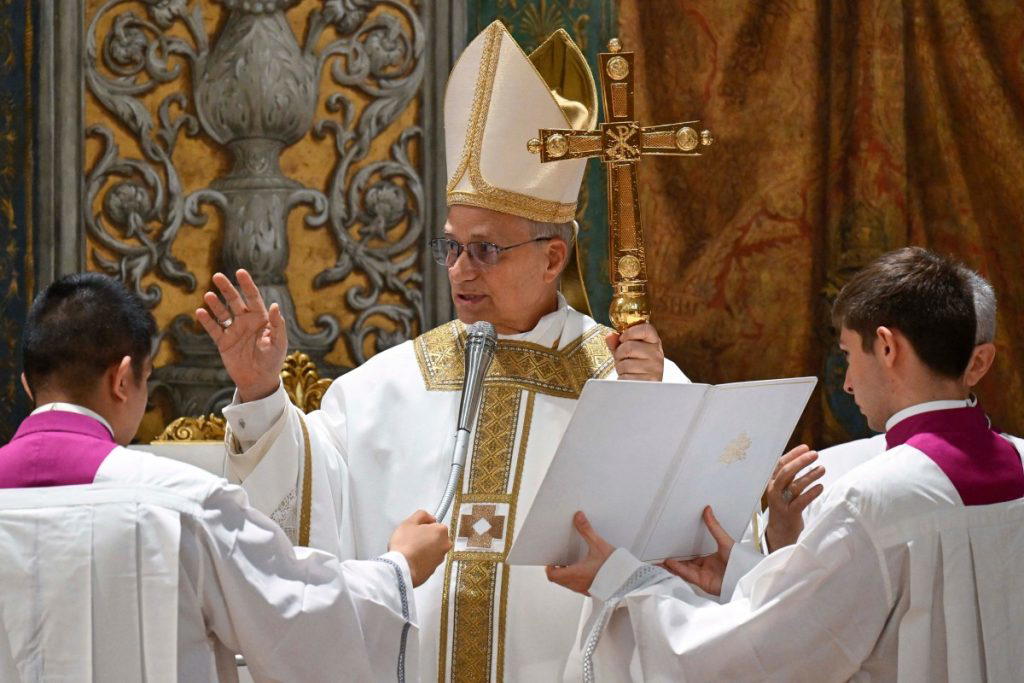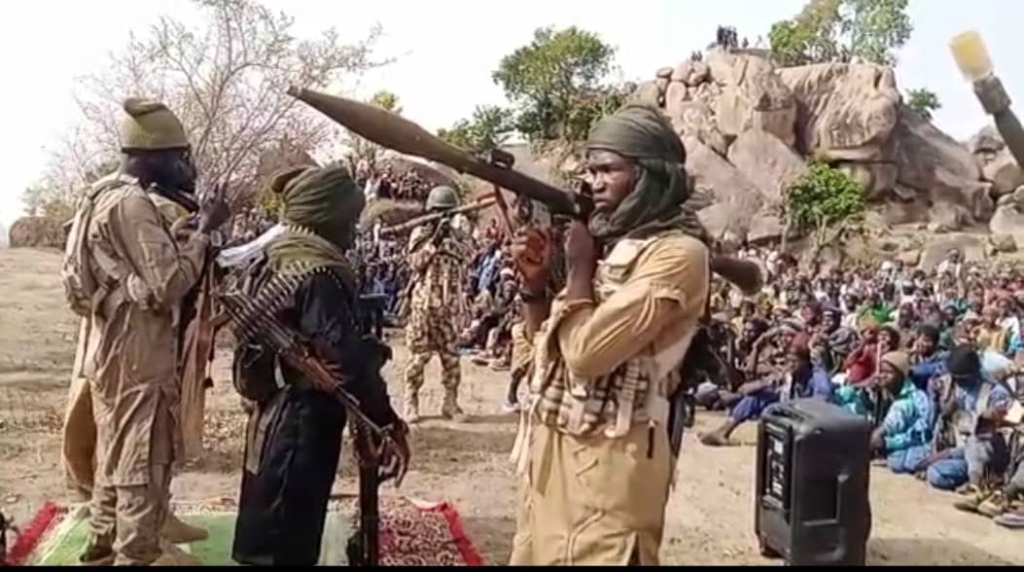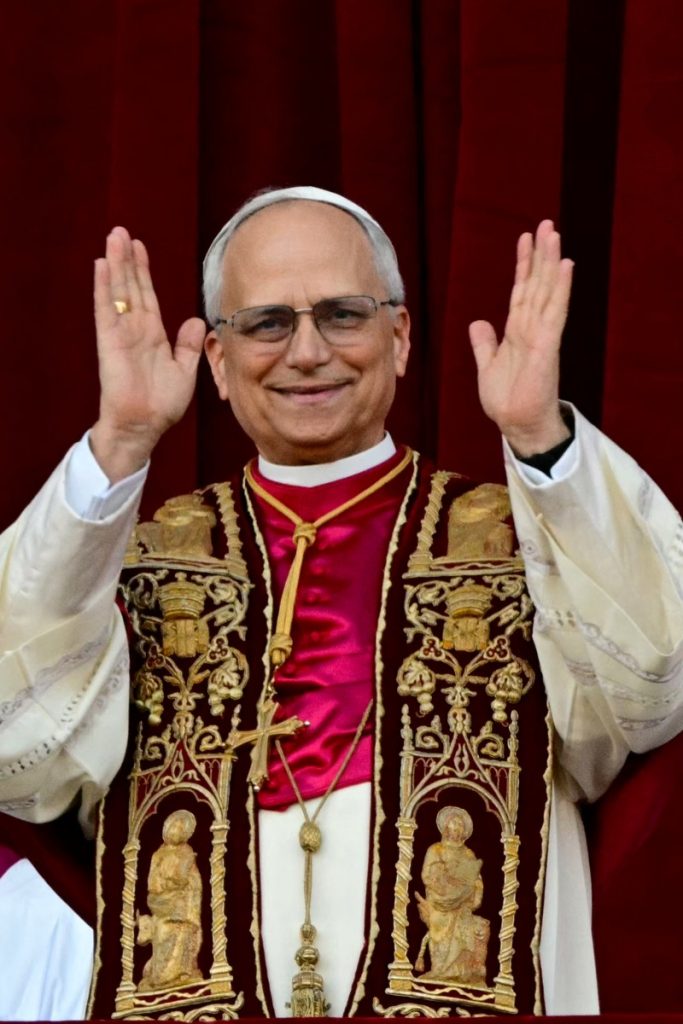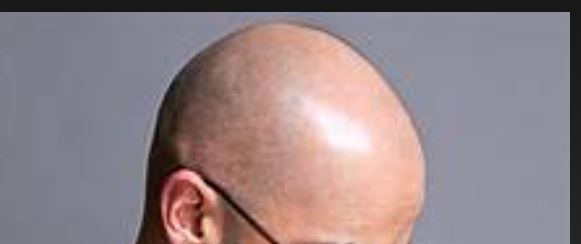
The White Smoke From Chicago,
By Stephanie Shakaa
For over two thousand years, the papacy has been shaped by the bloodlines of Europe,an uninterrupted stream of spiritual authority flowing from Rome, passing through German, Polish, and Argentine hands. But now, the tide of history has turned: for the first time ever, the Roman Catholic Church has elected an American pope.
Cardinal Robert Francis Prevost, born in Chicago and once a seminary classmate of Pope Francis at the Catholic Theological Union, has taken the name Pope Leo XIV,a name that evokes strength, reform, and vision. It is a name that echoes both tradition and transition.
A twist of divine irony, the papacy now has not one, but two popes named Francis,one who revolutionized the Church’s approach to humility, and the other who brings his own brand of quiet reform. If the first Francis was the Pope of the poor, the second might just be the Pope of the people, proving that sometimes, the name carries not just tradition but a promise of change. Perhaps it’s a sign that the Church is, quite literally, in good hands,hands that both wear humility like a crown and are ready to build on the legacy of the first.
He was previously the Prefect of the Dicastery for Bishops and the Archbishop emeritus of Chicago. Known for his conservative views, his election fulfills the desires of many, including President Trump, who hoped for an American Pope, as well as those who wanted a more traditionalist figure at the helm of the Church. Pope Leo XIV brings with him a wealth of experience from various high-ranking Vatican positions, including the Dicasteries for Evangelization, Doctrine of the Faith, Eastern Churches, Clergy, Institutes of Consecrated Life, and more. His election has been widely received with optimism.
But behind the white cassock is a story of impossible odds, quiet service, and divine choreography.
It is almost biblical in its symmetry. In the dusty, cold classrooms of a seminary in Chicago decades ago, two men sat beside each other. Jorge Mario Bergoglio from Buenos Aires and Robert Prevost from the U.S. Midwest. One would become Pope Francis. The other, unknowingly, would be his spiritual heir.
Born in 1955, Prevost grew up in a nation often perceived by Rome as youthful, restless, and too rich for its own good. He ministered in Peru, worked among the poor, and chose to keep a low profile in the Church. In many ways, he was the opposite of what many expected an American pope to be,not a prince, but a pilgrim.
Here’s the twist no one saw coming. America was once the mission field. Priests from Europe came across oceans to convert its people, build its parishes, and bring the gospel to a new world. Today, that very nation,often brash, politically polarized, and steeped in secularism,has now offered the Church its shepherd.
It is both irony and destiny. The Vatican, for centuries the center of Catholic power, has turned to the periphery for renewal. The American pope is not a symbol of triumph, but of transformation.
Pope Leo XIV ascends the throne of St. Peter at a fragile time. The Church faces hemorrhaging numbers in Europe, sexual abuse scandals in multiple continents, and a growing chasm between conservative and progressive wings. To many, this moment feels less like a celebration and more like a reckoning.
In an era when many young Catholics quietly drift away from the pews,disillusioned by rigidity, or irrelevance,the rise of Pope Leo XIV feels like a whisper of hope. He is not flashy, nor obsessed with relevance. But something about his grounded simplicity and history of listening, not lecturing, speaks to a generation craving authenticity over authority. In him, many see not a pope from America, but a pope for a global Church that is younger, more restless, and desperately yearning for something real
But Prevost is not naïve. As a scholar, missionary, and bridge-builder, he brings the intellectual rigor of Rome and the pastoral heart of Peru. He’s not here to Americanize the papacy. He’s here to humanize it.
For American Catholics long feeling like outsiders in global Church politics, Pope Leo XIV’s election feels like vindication.
Having spent a lifetime in the North and ministered in the South, Pope Leo XIV embodies a rare fluency in both Americas. He knows the pulse of Chicago’s parishes as intimately as the soul of Peru’s dusty mission fields. In him, the Church finds a bridge between continents,between privilege and poverty, modernity and tradition. His papacy is not just geographically symbolic, it is propheticMKJally positioned to reconcile a divided hemisphere and heal a Church that is, in many ways, a mirror of our fractured world.
But more importantly, it may signal a theological pivot,a Church that listens more, preaches less, and walks with the wounded.
Expect a pope who speaks plainly, thinks deeply, and confronts hard truths.
Will he tackle clericalism head-on? Will he expand the role of women in the Church? Will he push for reforms long resisted by Vatican traditionalists?
No one knows for sure. But the fact that a quiet American with Peruvian street-cred now leads over 1.3 billion souls suggests that the old boundaries of Church leadership,geographic, ideological, and spiritual,have forever shifted.
For decades, the American Catholic Church has stood as a paradox,affluent yet fractured, influential yet often dismissed as too politicized or culturally fragmented. With Pope Leo XIV, that perception begins to shift. He does not arrive waving the stars and stripes; he arrives cloaked in humility, bearing the scars and stories of the margins. His ascent is not just a personal milestone,it’s a reintroduction of American Catholicism to the world, not as a power bloc, but as a heart still capable of compassion and moral clarity.
The name Leo XIV isn’t accidental. Pope Leo XIII,his namesake,was known for confronting the industrial injustices of his day with the famous encyclical Rerum Novarum. Like him, Pope Leo XIV steps into a world torn by greed, war, and dehumanization. His task will not only be to preserve doctrine but to revive conscience.
And yet, perhaps the most beautiful thing about this moment isn’t political or theological at all. It’s spiritual.
It’s the quiet grace of a man who once sat in a seminary desk, asking God how to serve,now kneeling in the Vatican, asking the same question with the world watching.
From Chicago’s sidewalks to St. Peter’s Basilica, Pope Leon XIV reminds us that faith still finds its voice in the most unexpected hearts,and that even the ancient throne of Peter can be touched by the fresh winds of the New World.
Stephanie Shaakaa
shaakaastephanie@yahoo.com
08034861434
The post The White Smoke From Chicago appeared first on Vanguard News.
,
By Stephanie Shakaa For over two thousand years, the papacy has been shaped by the bloodlines of Europe,an uninterrupted stream of spiritual authority flowing from Rome, passing through German, Polish, and Argentine hands. But now, the tide of history has turned: for the first time ever, the Roman Catholic Church has elected an American pope. […]
The post The White Smoke From Chicago appeared first on Vanguard News.
, , Idowu Bankole, {authorlink},, , Vanguard News, May 10, 2025, 3:01 am











